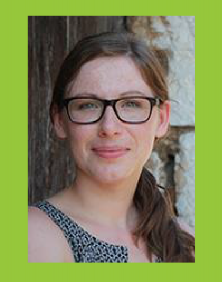2014-2015
Keeping it in the Family: What DNA can tell us about Household Histories and Social Memory in Mexico
Monday, April 13 6:30 pm
Giffels Auditorium, Old Main, University of Arkansas
Lisa Overholtzer, PhD, Department of Anthropology at Wichita State University
 Dr. Overholtzer is an anthropological archaeologist who investigates the everyday
material practices of ordinary people living in ancient and colonial central Mexico.
She has conducted extensive fieldwork at Xaltocan, where she investigated the ways
in which local household life was transformed under the successive Aztec and Spanish
imperial conquests. By exploring how ordinary people reconfigured their material surroundings
and (re)formed their daily lives after two drastic military defeats, this research
re-centers our understanding of Aztec and Spanish colonial empires around the lives
of rural commoners. Dr. Overholtzer's research employs a bottom-up perspective in
theory and in practice, and she is committed to decolonizing archaeological practice
through community archaeology and collaboration with descendant communities.
Dr. Overholtzer is an anthropological archaeologist who investigates the everyday
material practices of ordinary people living in ancient and colonial central Mexico.
She has conducted extensive fieldwork at Xaltocan, where she investigated the ways
in which local household life was transformed under the successive Aztec and Spanish
imperial conquests. By exploring how ordinary people reconfigured their material surroundings
and (re)formed their daily lives after two drastic military defeats, this research
re-centers our understanding of Aztec and Spanish colonial empires around the lives
of rural commoners. Dr. Overholtzer's research employs a bottom-up perspective in
theory and in practice, and she is committed to decolonizing archaeological practice
through community archaeology and collaboration with descendant communities.
Her research works to bridge disciplinary chasms between archaeological theorists and archaeological scientists through the application of geoarchaeological and molecular archaeology analyses to research questions derived from social theories of materiality, agency and practice, and embodiment. Her research interests include the study of households and the articulation between the macro- and micro-scales of society; space and place; and gender, ethnic, and age-based identities in ancient Mesoamerica. Analytical specialties include analysis of ceramics, especially figurines and decorated serving vessels, geochemical provenance analyses, and ancient DNA analysis.
Representative Publications:
- 2015 Agency, Practice, and Chronological Context: A Bayesian Approach to Household Chronologies. Journal of Anthropological Archaeology 37: 37-47.
- 2015 The Field Crew Symposium: A Model for Initial Implementation of a Collaborative Archaeology Project. Advances in Archaeological Practice 3(1).
- 2014 A New Bayesian Chronology for Postclassic and Colonial Occupation at Xaltocan, Mexico. Radiocarbon 56(3): 1077-1092.
- 2013 Archaeological Interpretation and the Rewriting of History: Deimperializing and Decolonizing the Past at Xaltocan, Mexico. American Anthropologist 115(3): 481-495.
- 2012 Mata-Miguez, Jaime, Lisa Overholtzer, Enrique Rodriguez-Alegria, Brian M. Kemp, and Deborah A. Bolnick. The Genetic Impact of Aztec Imperialism: Ancient Mitochondrial DNA Evidence from Xaltocan, Mexico. American Journal of Physical Anthropology 149(4): 504-516.
- 2012 So that the baby not be formed like a pottery rattle: Rattle Figurines and Aztec Household Social Reproductive Practices. Ancient Mesoamerica 23(1): 69-83.
- 2011 Overholtzer, Lisa and Wesley D. Stoner. Merging the Social and the Material: Life Histories of Ancient Mementos from Central Mexico. Journal of Social Archaeology 11(2): 171-193.
Acknowledgements
Funding provided by the Robert L. Stigler, Jr. Trust.
Highland Landscapes and Communities in Northern Anatolia: Alterity, Local Practice, and Connectivity in the Bronze Age
Thursday, October 23 6:30 pm
Giffels Auditorium, Old Main, University of Arkansas
Claudia Glatz, Senior Lecturer in Archaeology at the University of Glasgow.

Claudia Glatz is Senior Lecturer in Archaeology at the University of Glasgow (UK) whose research explores early social complexity and the archaeology of imperialism in the Bronze Age Middle East and Mediterranean. She directs archaeological field projects in Turkey and Iraqi Kurdistan, and is the author of the forthcoming book, Empire in the Making: Hittite Expansion and Local Responses in Late Bronze Age Anatolia (Cambridge).
Acknowledgements
Funding provided by the Robert L. Stigler, Jr. Trust.
Ancient Microbiomes and the Future of Paleodietary Research
Thursday, November 13 6:00 pm
Walker Hall 124, University of Arkansas
Christina Warinner, PhD, Harvard University
 Christina Warinner's research seeks to reconstruct ancient human diet, health, and
disease through analysis of DNA trapped in calcified dental calculus, or what is commonly
called plaque. Her talk will discuss the successful applications, methodological challenges,
and future possibilities of recovering pathogenic bacterial taxa, bacteriophages,
and human and dietary biomolecules from the metagenomic soup preserved on the teeth
of ancient people.
Christina Warinner's research seeks to reconstruct ancient human diet, health, and
disease through analysis of DNA trapped in calcified dental calculus, or what is commonly
called plaque. Her talk will discuss the successful applications, methodological challenges,
and future possibilities of recovering pathogenic bacterial taxa, bacteriophages,
and human and dietary biomolecules from the metagenomic soup preserved on the teeth
of ancient people.
Acknowledgements
Funding provided by the Robert L. Stigler, Jr. Trust.